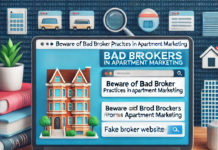This article was written by:
Dee Clayton, author & managing director of Simply Amazing Training.
Do you want to show you are invaluable to the business? You need to demonstrate your strategic thinking skills!
Three Tips to Improve Your Strategic Thinking
Other than communication skills, one of the most common skills missing at a senior level is strategic thinking. Many bosses tell their people they need to be “more strategic” but they don’t tell them how to do that! Fortunately, a few high level tips help you become more strategic and demonstrate that to others (not just do it quietly in a corner somewhere)!
Tip 1 – Think further, wider and longer
Think beyond just you. All too often managers formulate their views and recommendations in a silo, with too little consideration of the impact on the bigger and broader picture, other divisions, departments or interested parties, both now and in the future.
Think beyond right now. This is what Martin Luther King did so well in his ‘I have a dream’ speech. You don’t have to be a motivational speaker to do this. You need to just share your vision with those listening or reading. Describe what you can see in this new future, what you can hear, what it feels like and ideally how it works.
Tip 2 – Bring solutions not problems
If you bring solutions or a number of options to the table, instead of just problems, you will be demonstrating your ability to think strategically. It will suggest to any senior team that you are capable of dealing with problems that arise.
Scenario planning is thinking about as many possible scenarios and then planning for those. In the implementation of a CRM system, for example, we may want to look at the impacts of:
- Key people leaving during project implementation.
- Unforeseen costs of the project (e.g. making terminals multi-screen to actualize the time-saving benefits).
- A need to expand the system into the accounts department.
When you present to a higher-level audience such as senior management teams, shareholders, boards and executives they will definitely want you to be more strategic. Give them options, choices and risks when presenting to higher levels. You should also give your recommendation based on those – but I’d advise against the approach of ‘don’t mention it and they’ll never know’ school of thought!
Tip 3 – Less is more
When you are presenting more strategic ideas or projects, less is often more. How much information you need to go into, about how the product or software works, will depend on who you are presenting to and what their interests are.
If you are talking to the technical people who need to know the details, then of course go into the specifics. If, however, you are talking to the board or people who don’t need to know (they just want to know that it will work) it is best to share minimal information to help them see how it works and then stop. You can always offer to share more at another stage, and if they want more, they have the opportunity to ask for it.
Generally, the more information you give the more there is to disagree with, and the meeting (and your project) could be side-tracked if you aren’t careful.
Taking Action To Showcase Your Strategic Thinking Skills
Presentations and are a great chance to show your strategic thinking skills off! Ideally, you’ll be the main presenter. But, if you aren’t, think about the strategic questions you can ask of the presenter. Also, think about the questions to ask the group that demonstrates your new value-added way of thinking.
Without strategic thinking skills you could miss the inter-connectedness of things, be setting a poor example to your team and unknowingly make poor recommendations for the company as a whole. And if you aren’t showing your strategic thinking ability to the senior team you aren’t showing how invaluable you truly are.
But, by developing strategic thinking skills and making sure you show others how you’ve changed, you’ll:
- be seen as invaluable.
- illustrate your ability to see the bigger picture.
- represent the best interest of the company as a whole.
- demonstrate your suitability for bigger projects and more responsibility.
Dee Clayton is the director of Simply Amazing Training and 2x best-selling Amazon author who specializes in executive coaching, management training, presentation and public speaking training and the art of communicating effectively with others. Dee has worked with some big-name clients such as Toyota, Netflix, Volkswagen, RBS Bank and more.





